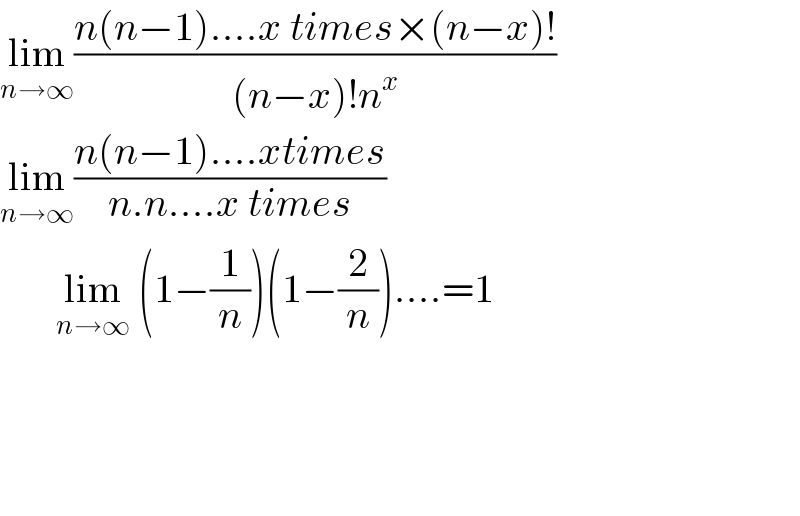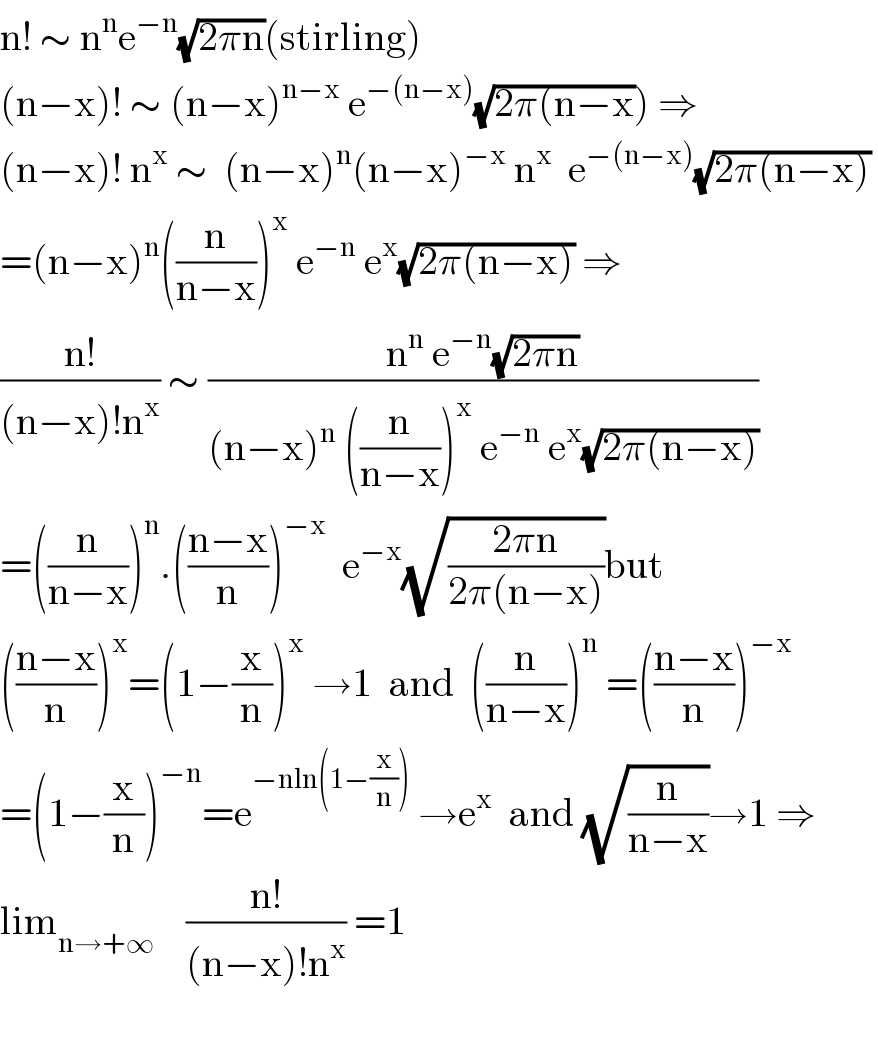
Question and Answers Forum
Question Number 106505 by Ar Brandon last updated on 05/Aug/20
![Show thatlim_(n→∞) [((n!)/((n−x)!n^x ))]=1](Q106505.png)
Answered by Dwaipayan Shikari last updated on 05/Aug/20

Commented by Ar Brandon last updated on 05/Aug/20
��Thanks. �� I arrived there while trying to demonstrate that as n and p go to infinity and zero respectively, the binomial probability distribution becomes approximately equal to the poisson distribution.
Commented by Dwaipayan Shikari last updated on 05/Aug/20
������
Commented by Dwaipayan Shikari last updated on 05/Aug/20
Are you from France?
Commented by Dwaipayan Shikari last updated on 05/Aug/20
Là nuit Bonne nuit
Commented by mathmax by abdo last updated on 06/Aug/20

Commented by Ar Brandon last updated on 06/Aug/20
����Bonne Nuit, mon ami Shikari.��
Answered by mathmax by abdo last updated on 06/Aug/20

Commented by Ar Brandon last updated on 06/Aug/20
Thanks Sir. Sorry I didn't precise that. In my case x is a natural number. But still arrived at thesame result. Thanks��
Commented by Dwaipayan Shikari last updated on 06/Aug/20
Thanking you for your corrections
